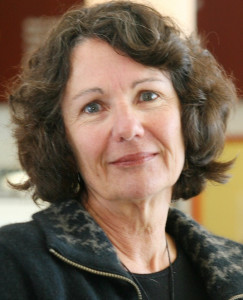
Chair of ISCHP
Chris Stephens, Massey University, NZ - [email protected]
The 2015 meeting of ISCHP in Grahamstown was very successful with a rich and varied programme of relevant events, visits and presentations, including three inspiring and engaged keynote speakers. Once again, many participants commented on the inclusive nature of ISCHP meetings, with many saying that this has been the best conference they have ever attended.
As the new elected chair of ISCHP I have been reflecting since on the development of the society and our future. I have been fortunate to have been able to attend all of the ISCHP biennial meetings since the society was founded in Birmingham in 2001. At that meeting we elected Michael Murray, who had boldly initiated the first international meeting in St Johns in Canada, as our first innovative Chair. Kerry Chamberlain followed, and continues as ‘perpetual past chair’. Kerry’s contribution is notable for his visible ongoing commitment and dedication to the aims and functioning of the society. Wendy Stainton Rogers has also been an outstanding immediate past chair, fostering that sense of inclusion by actively encouraging the involvement of students and researchers from more difficult to reach places such as Eastern Europe and South Africa. Her sense of justice and ethical practice has been inspiring, and the hilarious social events that she led are memorable.
In our early meetings the members were engaged in discussions about what we mean by being critical. Intense discussions were held face to face and then by email, until we arrived at the consensus reflected in the brief summary on the ISCHP website. At the time of the 2015 meeting the members were meeting new challenges raised by calls from Palestinian activists to boycott Israeli academics. This issue caused some serious discussions, some personal pain, and challenged the functioning of the society. Thanks to the opportunity to meet in Grahamstown, the engagement of our keynote speakers, and ongoing email discussion, we have learned that we can share different views, recognise when consensus cannot be reached, and respect the integrity of all members. At the same time, the members had no difficulty in reaching consensus on a statement of support for the South African Treatment Action Campaign (TAC). TAC supports the community healthcare workers (the ‘Bophelo House 94’) who are on trial for peaceful protest and need financial support - see links here and to donate to the campaign: here.
The society is in good heart to continue engaging and sharing our critical work. Following the Grahamstown meeting we have a newly invigorated executive committee. Younger society members (who are engaged in rigorous critical research in many areas of health psychology) are coming to the fore with exciting plans for the development of ISCHP. For example, we will utilise many forms of social media (including Facebook and Twitter) to increase the active engagement of members between meetings. This blog page (which replaces our newsletter) will be able to have content posted regularly so as to be as inclusive and broad ranging as possible. These activities will keep us connected and encourage new members from around the world to engage, until we can meet again in Worcester, UK, in 2017.
